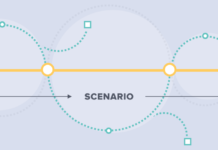The design of time
Should we judge a president by the design of their watch?
Continue reading on UX Collective »
Marquetry: a love affair with wood
Napoleon III period ormolu mounted marquetryI’m sure you have all seen amazingly detailed depictions of flowers, leaves, animals and landscapes on fine antique wood furniture that is entirely rendered in wood. This is the art of Marquetry, or “Painting in Wood” which is the partial or full coverage ..
Don’t Overthink Your Product Critique Interview
Don’t overthink your product critique interviewIt’s about who you are, not how many things you can say.Design is not art. But sometimes you gonna hold on to your own style like an artist. Photo credit: Alice DietrichThe MythIt’s confusing when people ask how to do a product critique.
Before you can ..
Understand why they’re doing it, not just what they do
Take control of your interviews — focus on three facets of interaction to understand motivations and behavior.
Continue reading on UX Collective »
We should bring back the retro 3D buttons of OS X’s Aqua UI
Continue reading on UX Collective »
The more you focus on optimizations, the more you lose control over the big...
— 100 design lessons for 2021
The more you focus on optimizations, the more you lose control over the big picture. was originally published in UX Collective on Medium, where people are continuing the conversation by highlighting and responding to this story.
The enigma of the ellipsis — and why we see it on every UI
The enigmatic ellipsis — and why we see it on every UIThis little symbol’s hit the big time, but has it forgotten where it came from?What do you think of when you see the symbol above on your screen? Does it mean “more”? Is it an “overflow indicator”? Maybe it’s a delicious counterpart to the hambur..
Navigating lack of user feedback
Building a product without user input is not only difficult but also pretty dangerous, leading you up a blind alley.
Continue reading on UX Collective »
A designerly approach to privacy
Designers must be agents of privacy change: they have the tools to understand and predict the future and should have the power to change…
Continue reading on UX Collective »









